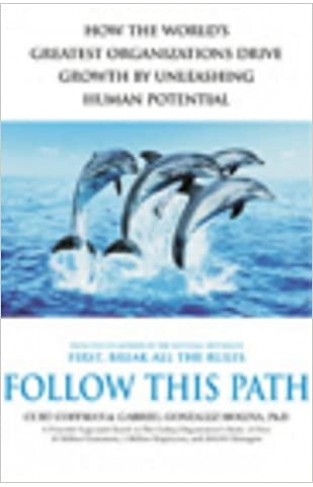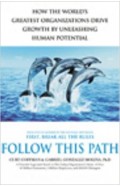- Home
- Books
- Categories
- Non Fiction
- Business & Management
- Follow this Path - How the World's Greatest Organizations Drive Growth by Unleashing Human Potential
Follow this Path - How the World's Greatest Organizations Drive Growth by Unleashing Human Potential
By: Curt Coffman
-
Rs 120.00
- Rs 1,200.00
- 90%
You save Rs 1,080.00.
Due to constant currency fluctuation, prices are subject to change with or without notice.
We're
offering a high discount on this book as it is slightly damaged
FOLLOW THIS PATH is a ten- step programme for making your company more profitable by understanding that both employees and customers are people with emotional and psychological needs and wants. People are not rational utility- maximizers acting on perfect information, as in economic theory. Rather, as both customer and employee, they want to form economic relationships- like any other kind of relationship- that are based on trust and emotional connection. If they succeed in forming such relationships, they engage (a key word in the book, and a central theme) with an organization, and will ultimately prove more profitable to it. The authors draw on years of Gallup surveys to detail the Q12- the 12 factors that encourage employees to become engaged with the organization, and the CE11- the 11 factors that lead to Customer Engagement. In each case, they show how engagement leads to profitability, and back up their claims with lots of statistics based on Gallup findings.
We're
offering a high discount on this book as it is slightly damaged
FOLLOW THIS PATH is a ten- step programme for making your company more profitable by understanding that both employees and customers are people with emotional and psychological needs and wants. People are not rational utility- maximizers acting on perfect information, as in economic theory. Rather, as both customer and employee, they want to form economic relationships- like any other kind of relationship- that are based on trust and emotional connection. If they succeed in forming such relationships, they engage (a key word in the book, and a central theme) with an organization, and will ultimately prove more profitable to it. The authors draw on years of Gallup surveys to detail the Q12- the 12 factors that encourage employees to become engaged with the organization, and the CE11- the 11 factors that lead to Customer Engagement. In each case, they show how engagement leads to profitability, and back up their claims with lots of statistics based on Gallup findings.
Follow this Path - How the World's Greatest Organizations Drive Growth by Unleashing Human Potential
By: Curt Coffman
Rs 120.00 Rs 1,200.00 Ex Tax :Rs 120.00
Zubin Mehta: A Musical Journey (An Authorized Biography)
By: VOID - Bakhtiar K. Dadabhoy
Rs 472.50 Rs 1,050.00 Ex Tax :Rs 472.50
Myths Illusions and Peace: Finding a New Direction for America in the Middle East
By: Dennis Ross
Rs 985.50 Rs 1,095.00 Ex Tax :Rs 985.50
The Origins of Political Order From Prehuman Times to the French RevolutioN
By: Francis Fukuyama
Rs 3,505.50 Rs 3,895.00 Ex Tax :Rs 3,505.50
Manning Up: How the Rise of Women Has Turned Men into Boys
By: Kay Hymowitz
Rs 646.75 Rs 995.00 Ex Tax :Rs 646.75
The Obama Syndrome: Surrender At Home War Abroad
By: Tariq Ali
Rs 1,165.50 Rs 1,295.00 Ex Tax :Rs 1,165.50
The Quest For Meaning: Developing A Philosophy Of Pluralism
By: Tariq Ramadan
Rs 1,255.50 Rs 1,395.00 Ex Tax :Rs 1,255.50
No similar books from this author available at the moment.
No recently viewed books available at the moment.
Zubin Mehta: A Musical Journey (An Authorized Biography)
By: VOID - Bakhtiar K. Dadabhoy
Rs 472.50 Rs 1,050.00 Ex Tax :Rs 472.50
Follow this Path - How the World's Greatest Organizations Drive Growth by Unleashing Human Potential
By: Curt Coffman
Rs 120.00 Rs 1,200.00 Ex Tax :Rs 120.00














-120x187.jpg?q6)







-120x187.jpg?q6)





